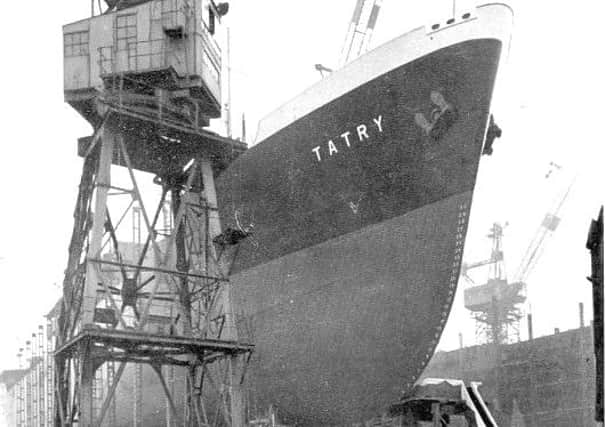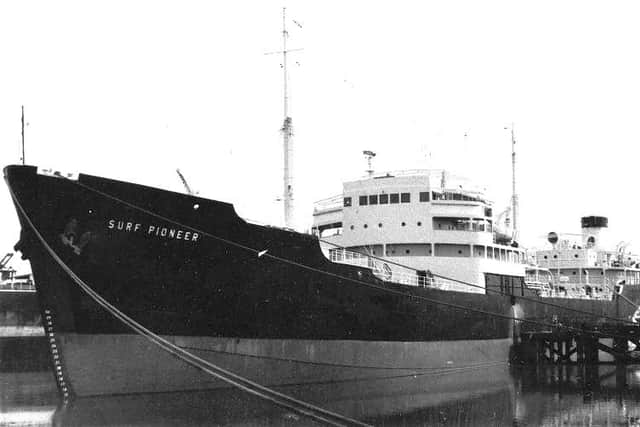When two Sunderland-built ships became the centre of an intriguing Cold War dispute


The 7,742 gross tons sister ships Tatry and Beskidy, were launched on February 7 and April 24, 1951, respectively. At a length of 453.2 feet and breadth of 60.5 feet, they were then the largest vessels launched by Bartram’s.
Tatry’s four-cylinder oil engines were manufactured by Richardson Westgarth Ltd, while Beskidy was engined by North East Marine Engineering (1938) Ltd of Wallsend.


Advertisement
Hide AdAdvertisement
Hide AdOn July 14, 1951, in a joint statement, the Foreign Office and Admiralty suddenly announced that Tatry and Beskidy had been requisitioned under Defence Regulations and enactments as they were required for defence purposes. This was believed to be the first time civilian ships had been requisitioned since World War Two.
Royal Naval officers boarded both vessels to take possession on behalf of the Government. In the case of Tatry, Captain Wasoski and his crew, who were already on board, were ordered to leave.
The Polish Ambassador was informed of the seizure but that the British Government was prepared to discuss compensation.
A group of Polish seamen who had arrived in the Tyne on board the Polish liner Batory to join Tatry fled, but were later granted political asylum.


Advertisement
Hide AdAdvertisement
Hide AdThe affair lead to questions being tabled in the House of Commons on July 31.
The official Polish news agency PAP had been quick to describe the matter as “an outright violation of the obligations of the British Government.”
Two reasons were suggested for the Government’s action, the first relating to the Persian Oil crisis after Iran’s nationalisation of the Anglo-Persian Oil Company, as it was feared the tankers might be used to carry Iranian oil.
The other was pressure from the USA aimed at blocking East-West trade in the prevailing Cold War climate.
Advertisement
Hide AdAdvertisement
Hide AdThe Government denied either reason to be true but insisted the Poles had defaulted on payment. Even then, the ships had not been requisitioned in retaliation it was claimed, but purely taken over for UK defence purposes.
With the Korean War having broken out in 1950, both tankers joined the Royal Fleet Auxiliary (RFA) with Tatry being renamed Surf Patrol (pennant no A357) and Beskidy becoming Surf Pioneer (pennant no A365). Both carried fuel for the Royal Navy.
Surf Patrol was decommissioned from the RFA in 1961, being renamed Marisurf for further commercial service in 1969. She was broken up at Split, Yugoslavia in 1980.
Surf Pioneer was decommissioned in 1960 and scrapped at Burriana, Spain in 1970.
Throughout their careers, both ships retained the embossed but painted-over Polish eagle insignia on their funnels.